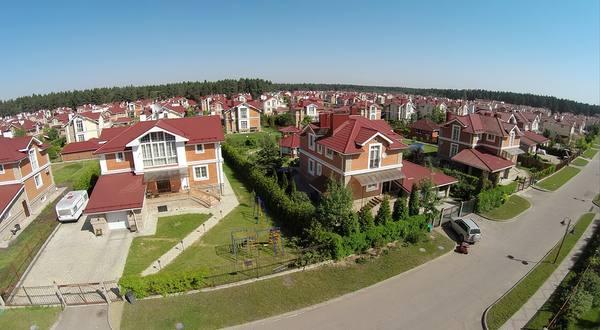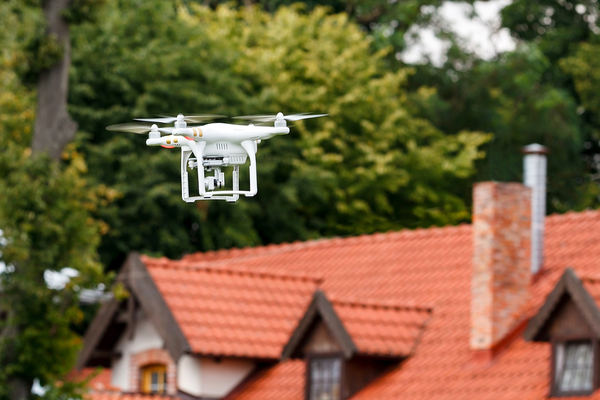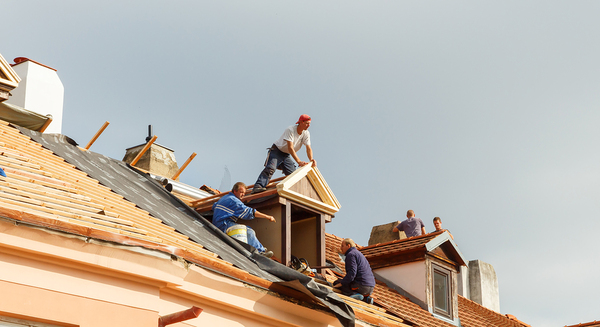
Using a drone is a new technique for making a roof inspection.
The business use of drones is popping up everywhere, from making deliveries to law enforcement surveillance. It is also being used in the construction industry for aerial surveillance of ongoing projects to roof inspections, making estimations and assessment of roof damage easier. The application of drone usage in industry raises some questions about the opportunities of using drones and challenges faced by roofing contractors in their use. Just as learning about new techniques for contractors is important, contractors license school continuing education helps a contractor increase skills and expertise, as well as stay up with the latest regulations.
Practicality of Drone Usage for Roof Inspections
Drones, formally known as unmanned aircraft systems, can be mounted with cameras and used for roof inspections, either after a project is finished, to show a homeowner the condition of an existing roof or for the contractor to get a good look at a roof without having to resort to sending a man up on a ladder. A minor challenge is that, although this is a practical application for drone usage in business, drones are classified as aircraft by the Federal Aviation Administration and require certification before being used.

Contractors using drones for commercial use require certification.
How Drones Offer Safe Inspection of Roofs
Because safety is a major concern for homeowners and companies alike, having an individual climb onto a roof, particularly one that is damaged and potentially unsafe, is a consideration. By using a drone, this is no longer a concern, and using a drone has the added benefit of offering clear videos of roof damage on a building, rather than using an estimation of damage by an individual. It also has the added advantage of avoiding further damage to a roof or potential injury of a worker when that person is doing an inspection by walking around on the roof surface. In addition, aerial videos can help a contractor make a more accurate bid for the job and show the potential customer where damage is and what will be entailed in the project.
Additional Advantages of Using a Drone for Roof Inspections
Because drones can be mounted with cameras with HD digital photography, roofing contractors can take close-up photos and can analyze those photos from the safety of the ground. By locating damaged areas where water is pooling and noting signs of decay, cracks and rot, as well as broken tiles, even at sharp angles, the contractor can easily see how much work a project will take and provide a better estimate. In addition, drones can spot problems with vents, drains, downspouts or any other problem that might require repair or replacement.
FAA Rules for Flying a Drone
Flying a drone used for work carries more stringent rules than flying one merely for enjoyment. An individual flying a drone for work must have a Remote Pilot Airman Certificate, pass Transportation Security Administration vetting and the area must be a Class G airspace. Fortunately, performing roof inspections are an approved type of business under FAA rules. Aircraft regulations are also in place for drone usage; however, those regulations are not overly stringent. Drones have to be registered if they weigh over 0.55 pounds, the operator has to be over 16 years old, and there are flight requirements to be met. None of this is particularly onerous, and a contractor who is interested in incorporating drones to use for roof inspections can find out more by accessing the FAA website.

A drone allows a contractor to make a job estimate using photos.
How Continuing Education Helps
One of the advantages of contractors license school continuing education courses, besides providing the necessary means to renew a license, is that contractors are kept up to date on the latest technologies available in the industry. This helps a contractor become more efficient, save money by using improved methods and stay abreast of the latest information.
PDH Contractor Academy offers both online and correspondence courses to help contractors in multiple states complete their educational requirements quickly and conveniently. Our preapproved courses are cost-effective, and we offer all the support services you need. Following successful completion of your chosen courses, we promptly notify the appropriate licensing board and supply you with a copy of the completion certificate for your own files. Nothing could be simpler. To learn more, browse our courses by state.
